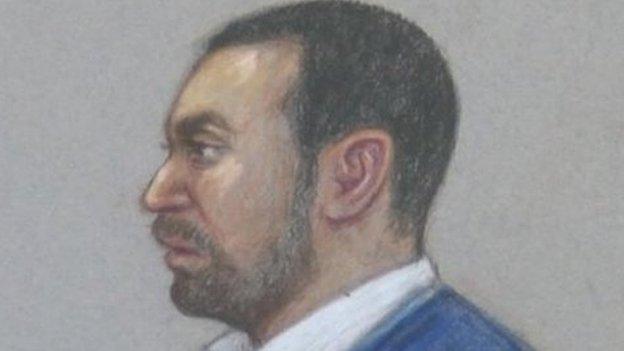Briton accepts his fingerprints were on Iraq bomb
- Published
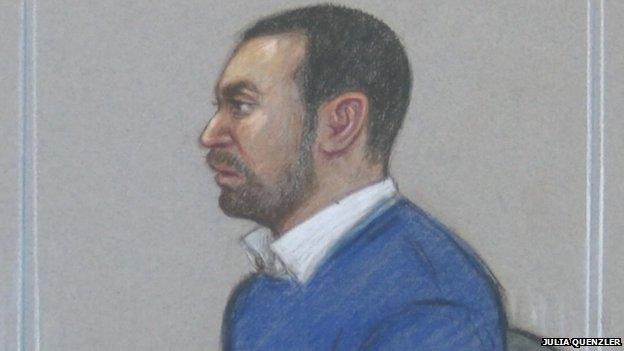
Anis Sardar is accused of being directly involved in making bombs for use in Iraq during 2007
A British man has admitted his fingerprints were on two bombs allegedly made along with a device that killed a US soldier in Iraq.
Anis Abid Sardar's lawyer told a court he "accepts the finger marks are his".
Sgt Randy Johnson, 34, was killed in an explosion near Baghdad in 2007, Woolwich Crown Court heard.
Mr Sardar, 38, from Wembley, north-west London, denies murder, conspiracy to murder and conspiracy to cause an explosion.
The court has heard allegations that Mr Sardar was part of a group that made a series of improvised explosive devices (IEDs) that were buried under the roads west of Baghdad in September 2007.
Two bombs that were recovered by US troops had the defendant's fingerprints on them, it was alleged during the opening of the trial on Tuesday.
On Wednesday, Mr Sardar's lawyer Henry Blaxland QC told the court: "Can I just make it clear, Mr Sardar accepts the finger marks attributed to him... are his."
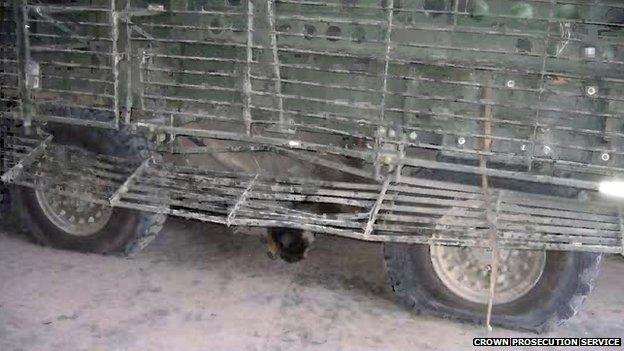
Jurors were shown a photograph of the damaged wheel area of the US armoured vehicle
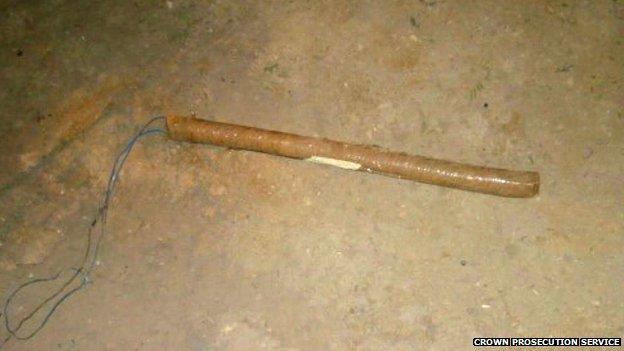
They also saw a photograph of a pressure plate used to activate an explosive device. It was attached to one of the four devices found in 2007
Although the offences took place in Iraq and the victim is American, the prosecution can be brought in Britain as Mr Sardar is a British citizen.
The court heard that Sgt Johnson, of the 2nd Cavalry Regiment, was killed when the Stryker eight-wheel armoured vehicle he was travelling in hit an IED on 27 September 2007.
Other US soldiers were seriously injured by the blast and also in a fire-fight while dealing with another IED.
The bomb that killed Sgt Johnson had been "part of a sequence" that was a "joint effort" by Mr Sardar and others, it was alleged.
'Don't let me die here'
Two of the US soldiers who were in the same armoured vehicle as Sgt Johnson told the court how they had been travelling along a dirt road when suddenly there was a loud bang.
Specialist Elroy Brooks said that when the blast went off he was blown about 15m outside the vehicle. A wheel landed 100m away.
When they had recovered consciousness they realised Sgt Johnson had sustained injuries to both legs and his lower torso.
The vehicle's medic Joshua Lord told the jury he saw Sgt Johnson "slumped over" in the hatch.
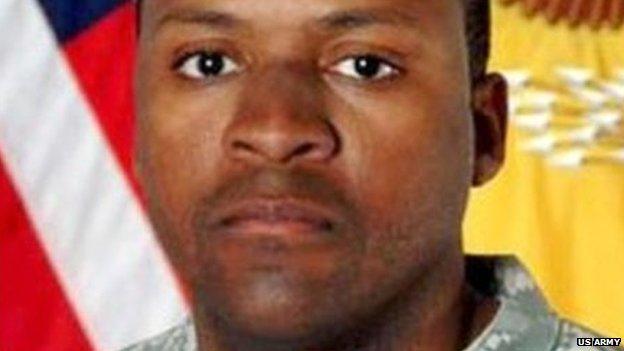
Sergeant Randy Johnson died after taking the full blast of a homemade bomb
Giving details to the jury, Specialist Brooks described how Sgt Johnson had taken the full blast of a homemade bomb that had blown a hole through the bottom of the vehicle.
Though he regained consciousness briefly, Sgt Johnson died before he could be evacuated by helicopter. His last words were: "Don't let me die here."
The blast also left Mark Aggers, who was serving as a gunner on the armoured vehicle, with serious shrapnel wounds.
The bomb was one of four similar devices found on the same stretch of road.
The fingerprints of Mr Sardar were found on two of the bombs - but not the device that actually killed Sgt Johnson.
The US-led invasion of Iraq began in 2003, amid claims Iraqi leader Saddam Hussein had weapons of mass destruction. It sparked years of violent conflict with different groups competing for power.
British forces ended combat operations in 2009 and the US did so the following year. A total of 179 UK service personnel and nearly 4,500 US soldiers were killed during the conflict.
- Published28 April 2015
